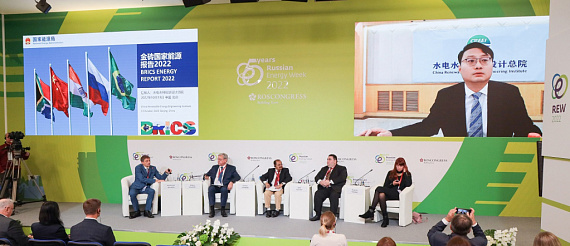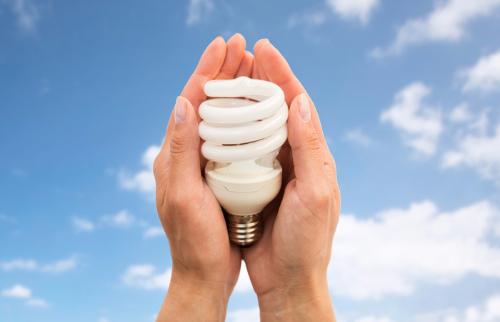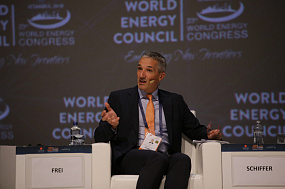BRICS Energy Research Cooperation Platform Experts Presented Results of Joint Research

The main findings of research on the development of renewable energy technologies and smart grids, as well as the results of the traditional BRICS Energy Outlook 2022 were presented at the Annual Meeting of the BRICS Energy Research Platform, which was held as part of the Russian Energy Week International Forum.
Energy is one of the key areas of international cooperation in general and one of the most important areas of BRICS cooperation. The mechanism underpinning this energy cooperation is the BRICS Energy Research Platform, which was established in 2019.
“The main objective of the Platform is to strengthen the role of the BRICS countries in shaping the global agenda, to promote the interests of the countries in the energy sector and ensure global energy security. The main areas of the Platform’s work are the most pressing issues of fuel and energy complex development, including technological development, energy transition, expansion of natural gas use, renewable energy sources and development of hydrogen energy. It is very important that the platform becomes a single platform for interaction between research institutes of our country's energy sector,” said Alexey Kulapin, General Director of the Russian Energy Agency (REA) of the Ministry of Energy of Russia, in his welcome address.
Presented by Jiong Hao, General Director and Senior Engineer of the Department of International Cooperation, China Renewable Energy Engineering Institute, the report reflects the core values and achievements of the BRICS countries in the context of fuel and energy cooperation.
According to the statistics announced by the expert, the share of BRICS countries in global electricity production is 42%, and in global renewable energy is 43%. As for Russia, the largest part of the country’s fuel and energy industry is gas production (54%), and most of the gasification is currently carried out inside the country. Next in line is oil (18%), renewables and other (16%) and coal (12%). According to Jiong Hao, these figures show that Russia’s energy sector is developing in a promising way.
One of the Platform studies focused on smart grid systems. The paper, presented by Shunchao Wang, Assistant Director of the International Business Department at China Electric Power Planning and Engineering Institute, includes, inter alia, a detailed description of the state of smart grid development in each of the BRICS countries, as well as a definition of the term ‘smart grid’.
According to Shunchao Wang, it is not possible to formulate a universal definition of the concept, as it depends on the specific country where smart grid is applied. For example, in developed countries, which have an advanced transmission infrastructure and a diverse consumer profile, smart grids aim to increase the share of renewable energy. In developing countries, the situation is somewhat different: smart grid is aimed more at improving the reliability and sustainability of the energy industry.
At the end of the meeting, the moderator of the discussion, Vyacheslav Kulagin, Head of the Center for the Study of World Energy Markets at the Energy Research Institute of the Russian Academy of Sciences, once again reminded the audience that all studies will soon be made publicly available online. They will be available on the website of the Ministry of Energy of the Russian Federation.
REW is organized by Russian Energy Agency (REA) of the Ministry of Energy of Russia and the Roscongress Foundation with support from the Ministry of Energy of the Russian Federation.




